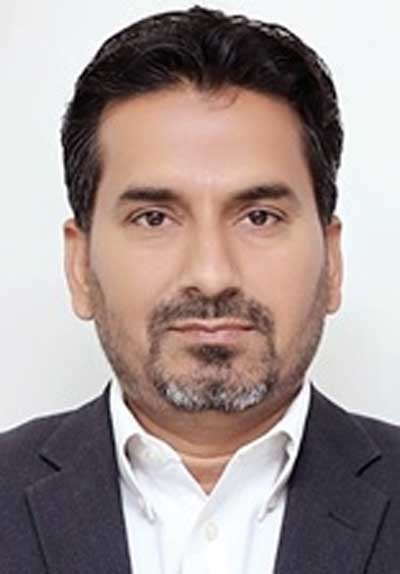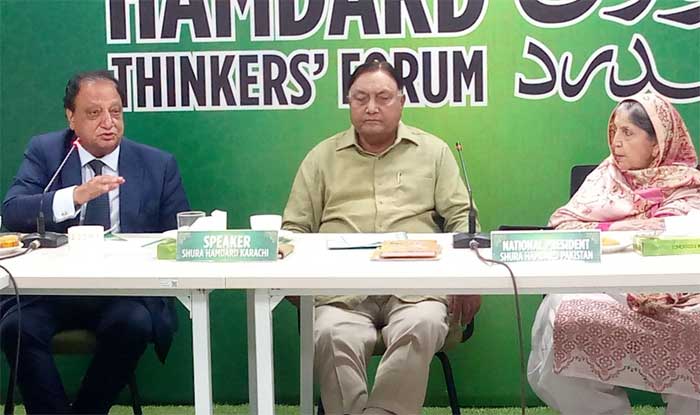The medium of the press is most strong source of communication with the masses.
It is a need of every country to maintain a free press for the purpose of keeping its people aware of its surroundings. Newspapers provide national and international news at people’s doorstep. It is an effective channel for informing to people about government policies and the changes taking place at social, economic, political as well as religious spheres. The press can influence the opinion to great extent through its news. It can mould people’s thinking. It is a power that speaks in words about the surroundings of people. To provide the news in the right time, it is imperative that the press of a country be free. People whether singly or in groups should not be given a chance by the government to influence the press through their power. But on the other hand, a good press should use this freedom of the press in a manner that is in the interest and benefit of the overall country. It should not use its power for the personal benefit of an individual or one segment of the society.
Until such power and freedom of the press is used within restraint and balance, it is useful for the overall good of society but when some kinds of news which are not properly investigated into and not fully followed up or only provide individual point of view, the power of the press is used wrongly. Such kind of news become the causes of agitation in the minds of people. They become confused. Now, people are in a state of mind in which they are not sure of what really is happening in their surroundings. Consequently, if such confusion takes birth, it is for sure that some people will get misled. In underdevelopment countries of the world, where majority of the people can’t read, these people who are misled will mislead their illiterate fellowmen because of the very confusing news.
Hence, it is the responsibility of the press to publish only these news that are from reliable and proper sources. It must be ensured that the news that is of great importance to the people should not be from an individual point of view. It must be based on the viewpoints of all those people to whom the news belongs. It is the responsibility of the press that for escaping the chances of confusion and unrest its news must not be partial and source of hatred among people of the society. Moreover, the press should use its freedom of expression for uniting people together. They should bind them together with the purpose of development and progress of the society rather dividing them and creating unrest and uncertainty. Media has opened new dimensions in learning. Now education is no longer constraint for anyone. Media has brought education to the doorstep of each and every individual. All forms of media the newspaper, social media, media television and the internet are equally important in importing education. As the technology is progressing, the different educational modules are being channeled through certain community access centers like community AI System televisions, media, Internet, community multi-media centers, etc. Media literacy or education does not only mean to be entertained by media but to learn something from it, as a major part of the learning process is concentrated on children, media play the significant role to satisfy their intellectual curiosity. Children often learn important things through the media which change their perspective to life. By separating people in such a way, and thereby distracting us with conflicts about certain issues. The effect of media on society has overall been to weaken us as a people and make it more difficult for us to unite and challenge oppressive rule, they can effectively inhibit people from addressing any serious issues within our system.
The significant affect can be judged through advertising. We see them everywhere. Commercials, print ads, infomercials, banner ads. Everywhere you turn, companies are always trying to tell you what to buy, what to wear; what to eat. How do companies decide what types of ads to run? How does advertising affect consumer choices, impact our purchasing of cars and clothing, and influence the restaurants we frequent and the movies we watch? The advertisements shown in media often captures the mood of the individuals. Generally, girls, are very sensitive about their physical image. When an adolescent girl watches the ads that show unless we buy a product or carry the style statement or wash our hair with a specific shampoo and look smart like a slim model, we do not get respect in the society or get a job. The main aim of this form is to focus on the positive effects of media on learning and how different forms of media have contributed of the development of mankind. Media is everywhere. It has become a part to our daily life. The media plays a dominant role in the learning process. Its impact is vast in shaping the life of an individual. Media has the potential to shape personalities, change the way we perceive and understand the world and our immediate reality. Though we know that all good things have both good and bad affects, likewise media too have some positive and negative effects. Moreover, it is fact that large number of people depend on the internet to collect information, read news, and listen to music and download movies, play games and also for work. Newspapers, media, social apps, Television and the Internet all form part of the media and are important in imparting education. Media, offers culture, sports, information, entertainment, current affairs and education. Sometimes the impact of media is very high. It happens gradually as children see and hear certain messages repeatedly. Glad to see that Pakistan Telecommunication Authority (PTA) is taking actions against the online games that are actually a fun for children but pose various health and social risks. Also PTA advised, Parents to safeguard their children by arranging physical activities, monitoring online activities, limiting screen time and guiding them to mitigate risks. Some of the devastating advertisements include. Fighting and unnecessary quarrel, cigarettes and alcohol being shown as the symbol of heroism, style and attractive, but not deadly and unhealthy. Moreover, violation of laws is shown as a means to gain justice and sexual action with no negative results, such as disease and unintended pregnancy. In recent years, the impact of media on teaching and learning has increased tremendously. Online learning and AI gradually entering classrooms and changing the way of learning. With the onset of new technologies and the emerging trends in the global economy, the present-day education is changing. Therefore, there is a need to change ourselves with the emerging wave of technology.
The first and foremost effect of media is definitely the accumulation of general knowledge, different dialects and cultures. Media boosts the social awareness of a child to a great extent. Sports channels develop the logical mindset of a child. Cartoon channels keep the children happy. News channels increase the vocabulary of the children and inform them about the positive and negative impacts on the society. It increases the concentration and retention power of a child, which benefits their studies to a great extent.
There are also negative effects of media on children. There are many incidents where children try to imitate the super heroes and it results in death. Studies often get hampered and laps of concentration occurs due to excessive watching of social media. Social scientists say the media impacts our lives in four ways: agenda-setting, norms and culture, modeling and apathy. The crux of agenda, setting is the idea that if the media ignores something, then it can’t be news; conversely, if the media does not tell us how to think, but because the audience tends to absorb the agenda of the front page or the reels, tweets, the media, in a sense, tells us what to think about, If the media covers abortion, child abuse, Aids, World Wide poverty, or war, then the audience tends to pay attention to these topics, and that’s what they become concerned about or talk about. Through the media, particularly the entertainment media, we learn ways of behaving and standards of conduct. Because of television we are no longer isolated in small communities, and we receive the same information, see the same shows and advertisements. One result of people being exposed to the same media is a tendency towards what is called homogenization of culture. People become more homogeneous in nature, more uniform in thought and action. Modeling, people, particularly young children, learn behaviour by imitating others. We tend to model behavior seem on social media and in movies. We learn the following from watching Netflix styles of dealing with people, how much physical aggression is acceptable, and how to act on a meeting. Apathy, one of the most common criticisms of mass media is that people tends to replace participation with passive pseudo-experience. In other words, we tend to feel it is enough to know about a problem or issue instead of feeling obliged to do something about it. Apathy also results from the vast amounts of information available. How can we find time to become educated enough to understand a complex issue and take action?
The media itself is somewhat at fault here, as it often fails to provide information on howpeople can get involved. The media needs to be more diligent in providing what is called mobilizing information on how to get involved or who to call. The UN Bureau chief for Inter Press Service (IPS) new agency, Thalif Deen, singled out the impact of the media on human life. “The impact the media can now have upon our perceptions of others has reached an unprecedented scale”.
2nd part of the puissance of media




